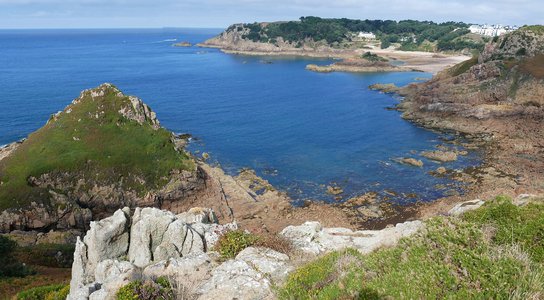The first time Keith heard of Abacus Land was when he received a letter telling him he owed them ground rent for his leasehold flat. The Jersey based anonymous company was at least the third company he had been asked to pay since he bought his flat in Kent in 2014.
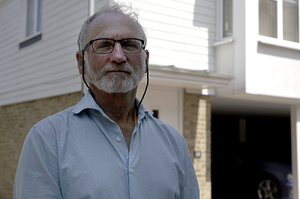
“I didn’t know anything about the leasehold business before I bought the flat. I didn’t know that when the lease runs out they can take your property from you, I didn’t know they can charge you for painting your front door or changing your carpets. I didn’t know I’d be sending money off to a tax haven every year until I can sell the flat."
Keith isn’t alone. When Katie bought her house in Cheshire through the Government’s Help to Buy scheme, she thought it would be her “forever home”. Like Keith, she was told she would have the opportunity to buy the freehold.
“The management company wouldn’t give me a quote to buy my freehold until I’d paid them £108. They charge £108 every time you ask them about pets, decorating, anything. And then when I’d paid, they told me the freehold would cost £13,300 - over £10,000 more than I’d been told a year and a half earlier.”
That was more than Katie could afford on her nurse’s salary. She tried to speak to the people who had bought her freehold - another anonymously-owned company called Adriatic Land -- but there was no one for her to call. Neither Katie nor Keith have any way of directly contacting the actual owners of their freeholds - their identities are kept hidden through opaque offshore company structures.
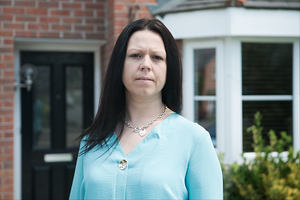
Shapeshifting, offshore freeholders
Our new analysis reveals that Keith and Katie share their problems with thousands of other leaseholders whose landlords are mysterious offshore companies like Adriatic and Abacus. These companies are at the heart of a controversial system of freehold ownership that has been branded by one Member of Parliament as “legalised extortion”. The anonymity provided by the offshore system makes it almost impossible for leaseholders to communicate directly with their freeholders.
Global Witness has identified a shadowy group of anonymous companies which share addresses or directors, many of whom appear to be nominees. Taken together the companies in the Adriatic Land and Abacus Land groups own 2,926 freeholds, which make them the largest offshore corporate owners of freeholds in England and Wales. Our analysis of data from the Land Registry and Long Harbour website suggests that the number of homes leased by the Abacus and Adriatic group could exceed 35,000.
The complex corporate
structures which Abacus and Adriatic operate appear to be designed to make it
difficult for leaseholders to buy the freeholds for their homes. Under English law, leaseholders of flats have
the “right of first refusal” to purchase their freehold if their current
freeholder wishes to sell the title. But if the freehold is transferred to an “associated company”, the
leaseholder has no such right.
Our analysis of the group’s corporate records show a pattern where instead of buying the freehold directly from a company owned by a developer - which would trigger the right of first refusal - they instead keep the freehold with the same company, but rename it and transfer the shares from the developer to the group.
This isn’t just a story about business people hiding behind anonymous companies to use a feudal quirk in British law to profit from normal people. An Adriatic Land company was in the news two weeks ago when a major fire hit a block of flats they own in Barking. Their anonymous company structures had long been a problem for the residents affected by this fire:
Venilia Batista Amorim, Treasurer of the Barking Reach Residents' Association told Global Witness, “lots of us have tried to contact them [Adriatic Land] about the cladding after Grenfell – but there’s no way to contact them. They don’t even have a website.
“There was a meeting for residents at our community centre yesterday [the day after the fire]. There was no one there from Adriatic – they sent a representative from HomeGround [their management company] on their behalf but they didn’t say much.
“It’s frustrating. We’re trying to get hold of someone responsible for these things, and we can’t. They really hide behind all of these bureaucratic layers of management.”
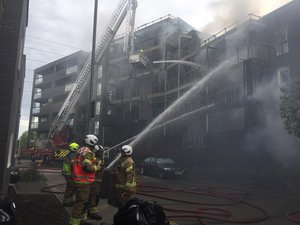
Long Harbour and its anonymous investors
There is little on public record about the ultimate beneficiaries of the Adriatic and Abacus group. The filings of their UK incarnations - such as Adriatic Land 3 (GR1), which owns the freehold for the Barking flats - reveal minimal information and generally declare that they have no “person of significant control” (also known as a “beneficial owner”), and list a single offshore shareholding company with a similar name.
However, recent media reports and a parliamentary account have connected Adriatic Land companies to an investment management firm called Long Harbour, whose founder and CEO is William Astor, the half-brother-in-law of David Cameron, and the son of the fourth Viscount Astor - a Conservative Peer. Data from the Long Harbour website also corroborates a connection between them and Abacus and Adriatic companies. Long Harbour says it holds a £1.4 billion property portfolio and has purchased over 160,000 residential units. It says it invests on behalf of pension funds and other institutional investors, but there is no available public information about their investors to confirm this.
We asked William Astor if he had set up the various incarnations of Adriatic and Abacus Land to avoid giving the leaseholders of these properties the option of buying their freeholds. We also asked him if Long Harbour used the offshore system to protect investors - whoever they may be - from having to answer to the people from whom they collect ground rent.
Lawyers acting on behalf of William Astor denied this saying that the ownership of freeholds from Guernsey and Jersey was for “operational reasons” and that “HomeGround, which acts [as a management company] on behalf of freeholders, is fully contactable.” They denied that Long Harbour was in any way attempting to avoid fulfilling its “obligations to leaseholders” and that both Long Harbour and HomeGround conduct their business with “complete transparency and accountability”.
Anonymous companies are, by their nature, impersonal. But the way some owners are using them to wield power over other people without ever revealing their identities is affecting the lives of thousands of people around the UK.
“If there’s nothing underhand and they’re not ashamed of what they’re doing - why can’t they hold their hands up and say who they are? I can’t see any reason why property that’s here in the UK should be owned by an offshore company. It just doesn’t make sense - it shouldn’t be allowed.” (Katie Kendrick, one of the Founders of the National Leasehold Campaign)
It doesn’t have to be this way. The government is currently reviewing a new law to introduce a public register of the real owners of foreign companies that own property and land in the UK. If it is introduced these offshore freeholders could finally be forced out of the shadows.
Find out more
You might also like
-
Press release £100bn of property in England and Wales is secretly owned, estimates show
New estimates reveal the scale of anonymous ownership in the UK property market.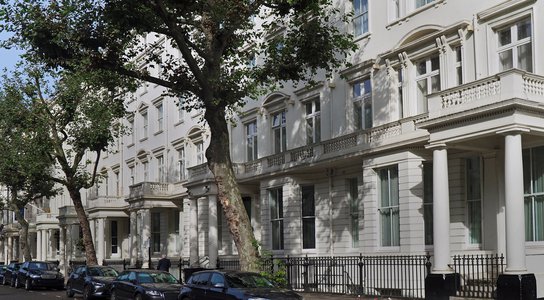
-
Press release Secrecy in UK property market enables freehold companies to rip off homeowners
Secretive offshore companies are being used to shield freeholders from being held to account by leasehold homeowners.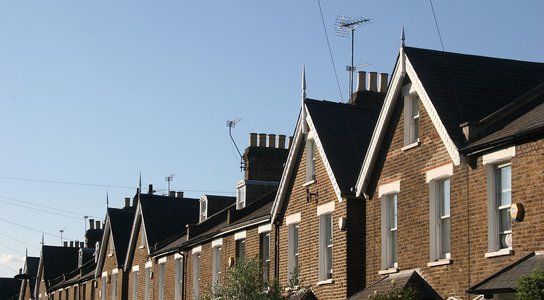
-
Press release Progress against dirty money with pledge from UK Crown Dependencies
A commitment today from the UK’s Crown Dependencies to publicly reveal who owns the companies based in those jurisdictions is a key moment in the global fight against dirty money.